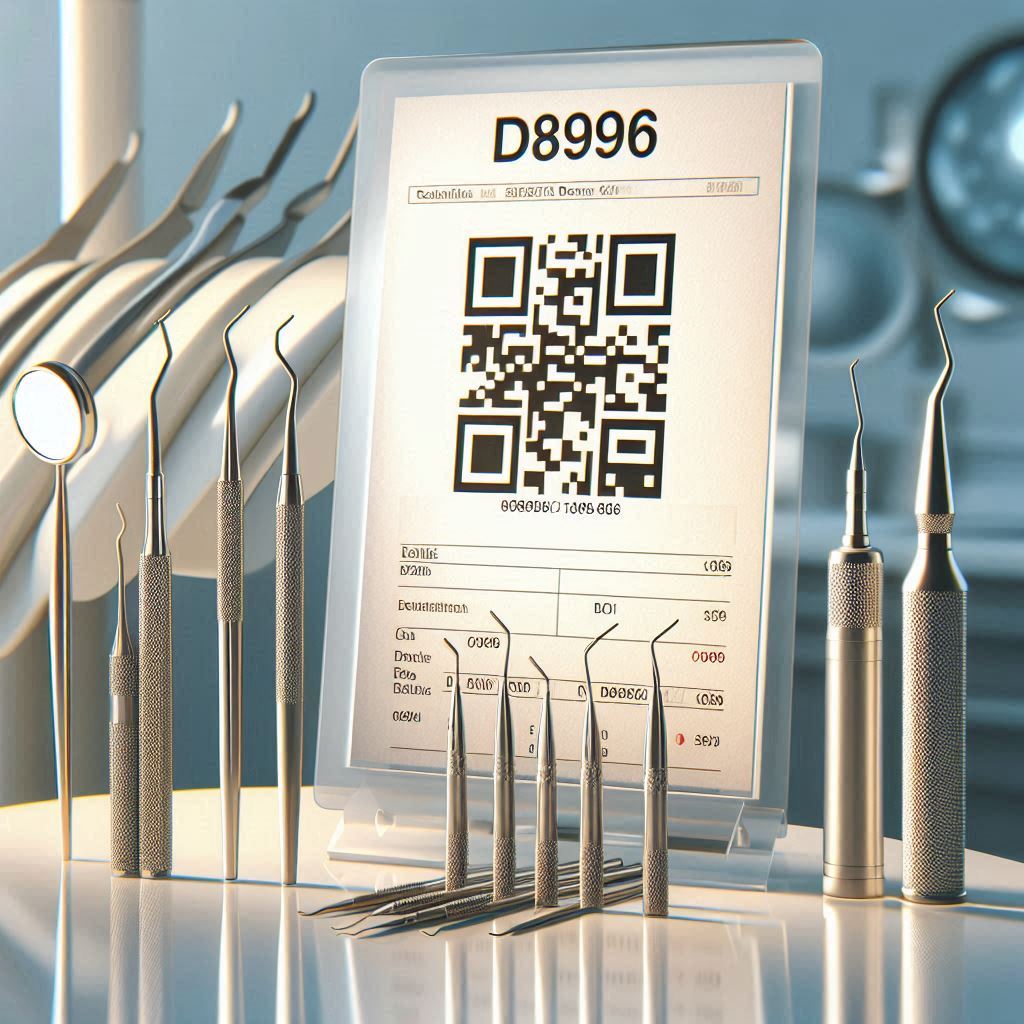D8996 Dental Code
The D8996 dental code is one of the most misunderstood yet essential codes in modern dentistry. It falls under the orthodontic adjunct procedures category and is often used in complex treatment plans. However, many dental professionals struggle with its proper application, leading to billing errors and claim denials.
This comprehensive guide will explore what D8996 means, when to use it, how it differs from other codes, and best practices for billing. Whether you’re a dentist, orthodontist, or insurance specialist, this article will clarify ambiguities and help you maximize reimbursement while ensuring compliance.

2. What Is the D8996 Dental Code?
The D8996 code is classified under the American Dental Association (ADA) Current Dental Terminology (CDT) manual. Its official description is:
“D8996 – Orthodontic treatment (alternative billing to a contract fee)”
This means it is used when an orthodontic treatment does not fit standard billing codes (such as D8010-D8999) and requires an alternative fee arrangement.
Key Characteristics of D8996
- Used for non-standard orthodontic treatments
- Applied when a contract fee is involved
- Often seen in multi-disciplinary cases (e.g., ortho-perio or ortho-surgical treatments)
- Not tied to a specific procedure but rather a billing adjustment
3. Purpose and Clinical Applications
When Is D8996 Necessary?
D8996 is typically used in scenarios where:
- A patient’s treatment plan deviates from standard orthodontic care
- A custom fee agreement exists between the provider and patient/insurer
- The case involves unusual adjustments or adjunctive procedures
Example Cases
| Scenario | Applicable? |
|---|---|
| Standard braces treatment (D8070) | ❌ No |
| Custom ortho-perio treatment with negotiated fee | ✅ Yes |
| Clear aligner therapy (D8090) | ❌ No |
| Hybrid treatment (braces + aligners) with contract fee | ✅ Yes |
4. Differences Between D8996 and Other Dental Codes
Many dental professionals confuse D8996 with similar codes. Below is a comparison:
| Code | Description | When to Use |
|---|---|---|
| D8996 | Alternative billing for contract fee | Non-standard ortho cases |
| D8070 | Comprehensive orthodontic treatment | Full braces treatment |
| D8090 | Orthodontic treatment with aligners | Invisalign® or similar |
| D8680 | Orthodontic retention | Post-treatment retainers |
Key Takeaway: D8996 is not a procedure code but a billing modifier for unique cases.
5. Billing and Insurance Considerations
How to Bill D8996 Correctly
- Document thoroughly: Include a letter of explanation detailing why standard codes don’t apply.
- Verify insurance policies: Some insurers reject D8996 unless pre-authorized.
- Use in conjunction with other codes: Example:
- D8070 (Comprehensive braces) + D8996 (for adjunctive adjustments)
Common Billing Mistakes
❌ Using D8996 as a standalone code (it must accompany another ortho code).
❌ Failing to justify the alternative fee in documentation.
6. Case Studies and Real-World Applications
Case Study 1: Hybrid Ortho-Perio Treatment
A 35-year-old patient required braces + gum surgery due to severe malocclusion and bone loss. The orthodontist and periodontist agreed on a custom fee arrangement.
- Billing:
- D8070 (Comprehensive braces)
- D8996 (Alternative contract fee for interdisciplinary care)
7. FAQs About D8996
Q1: Can D8996 be used for Invisalign?
No, Invisalign has its own code (D8090). D8996 applies only to non-standard contract-based fees.
Q2: Does Medicaid accept D8996?
Rarely. Medicaid often requires pre-authorization for non-standard billing.
Q3: How often is D8996 denied by insurers?
About 30-40% of claims are initially denied due to insufficient documentation.
8. Conclusion
The D8996 dental code is essential for non-standard orthodontic billing but requires precise documentation. It should never replace standard procedure codes but rather supplement them in contract-based cases. Proper use ensures fair reimbursement while maintaining compliance.
9. Additional Resources
- ADA CDT Code Manual (Latest Edition)
- AAO Billing Guidelines for Orthodontics
- Medicare & Medicaid Orthodontic Billing Policies


